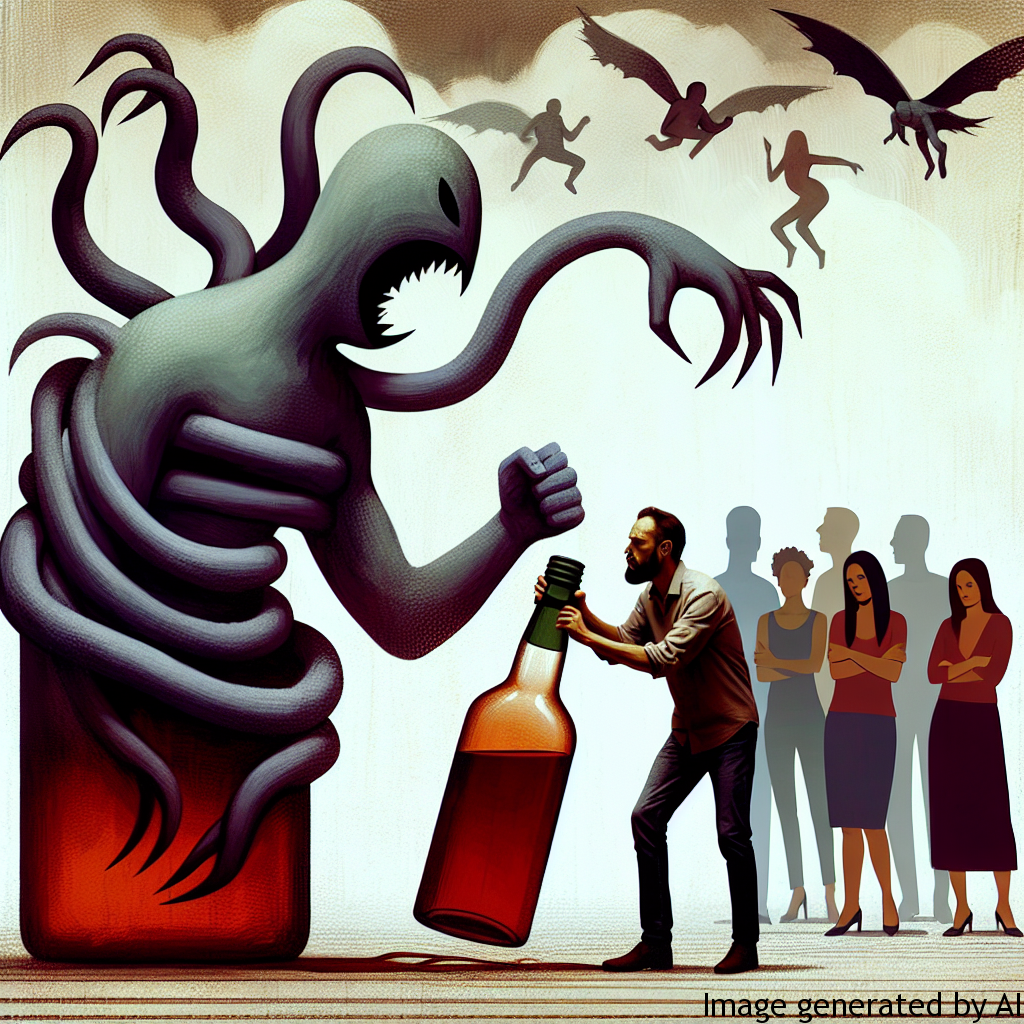Introduction
Alcoholism is a chronic disease characterized by the inability to control or stop drinking in spite of health issues, social problems, or personal adversity. Individuals battling alcoholism often suffer a series of social stigmas that can severely affect their self-esteem, interpersonal relationships, and psychological wellbeing. These stigmas can also hinder those seeking help or rehabilitation, further entrapping them into a cycle of addiction.
Description of Gender Expectations and their Impact on Men’s Mental Health
Concept of Masculinity and Alcoholism
Societal viewpoints on gender roles have created expectations that may inadvertently push men towards alcohol abuse. Men are traditionally seen as strong, independent, and unemotional, a portrayal that can lead to unhealthy coping strategies. Consequently, many men resort to alcohol as a means to suppress their emotions and maintain the façade of strength and stoicism.
Perception of Alcoholism in Men
Alcoholism among men is often viewed less as a health concern and more as a failing of character or discipline, reinforcing the associated social stigma. Society often expects men to self-regulate and manage their addiction without help, further promoting isolation and denial, which in turn, compounds the psychological distress.
Examples of how Gender Roles can Influence Men’s Lives
Gender roles have a significant impact on men’s lives, particularly in regards to alcoholism. Men are expected to be the ‘party animals’ and ‘heavy drinkers’, a stereotype that can lead to normalizing excessive drinking behavior. In a bid to fit into these stereotypes, men often find themselves caught up in the vicious cycle of addiction.
Additionally, the stereotype that ‘real men’ should be able to handle their liquor can cause men to resist seeking help, escalating the risk of severe health issues, and masking the severity of their addiction. The labeling of alcoholism as a result of lacking self-control not only hampers their ability to seek treatment but also affects their personal and professional relationships.
Tips for Improving Mental Health Considering Gender Roles
Getting beyond the societal stereotypes can play a pivotal role in alleviating the stigma associated with alcoholism in men. Here are some suggestions:
– Acceptance and Support: It’s important to show acceptance and offer support to those battling alcoholism. Understanding that it’s a disease and not a result of poor character can help to reduce stigma.
– Encourage Openness: Encouraging men to be open about their struggles assists in deconstructing the ‘strong and silent’ stereotype.
– Reframe Societal Perspectives: There’s a need to change societal viewpoints about masculinity and alcoholism. Highlighting that vulnerability isn’t a weakness and showing emotions is not unmanly can play a critical role.
– Professional Help: Encourage seeking help from professionals. This can be a significant step forward in eradicating alcoholism and improving mental well-being.
Conclusion
Overcoming the social stigmas associated with alcoholism requires a societal shift in perception. It’s crucial that we break away from restrictive gender roles that not only fuel alcoholism but also prevent its treatment. Addressing these stigmas and fostering a supportive and understanding environment can pave the way towards better mental health for men and a reduction in the prevalence of alcoholism.

